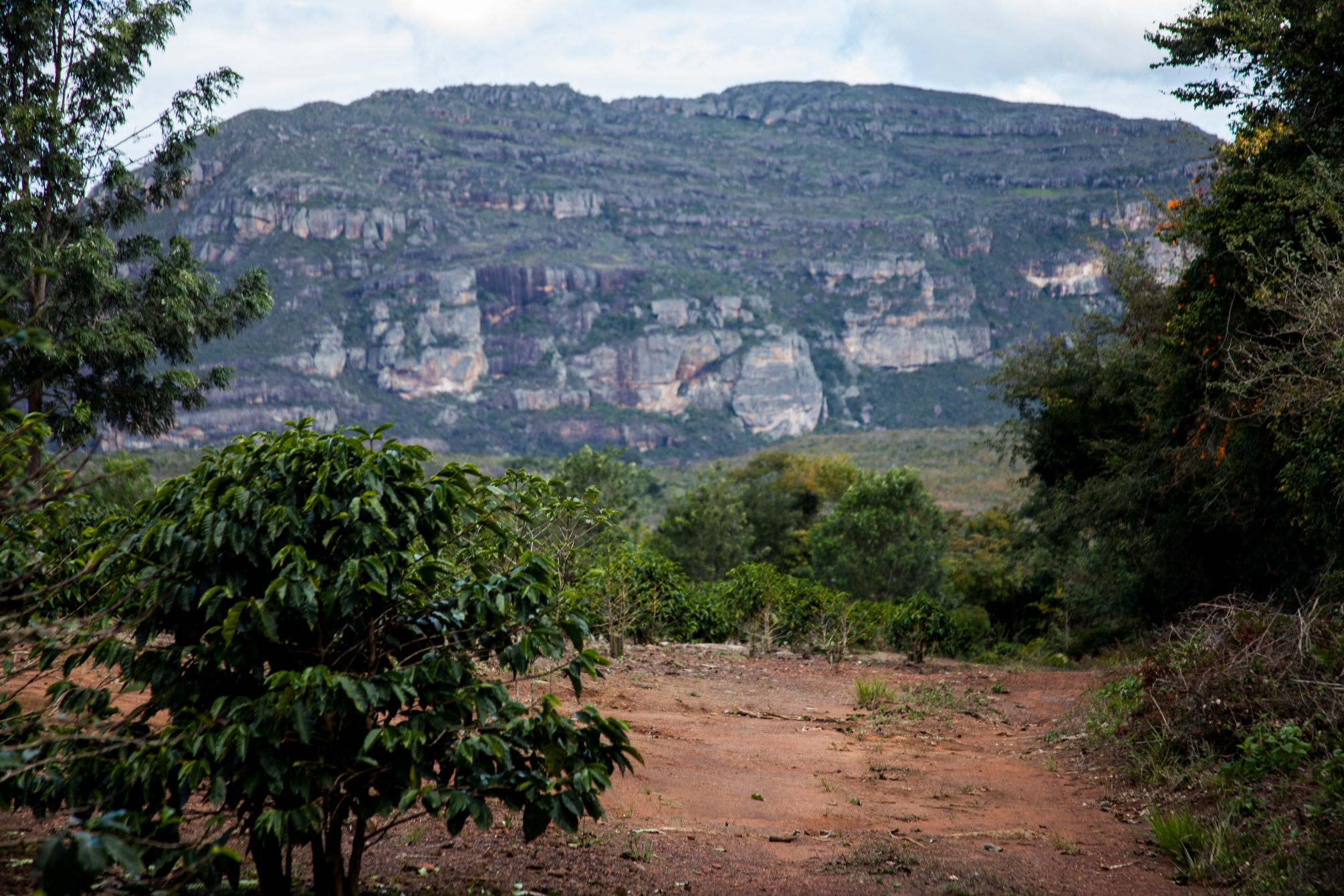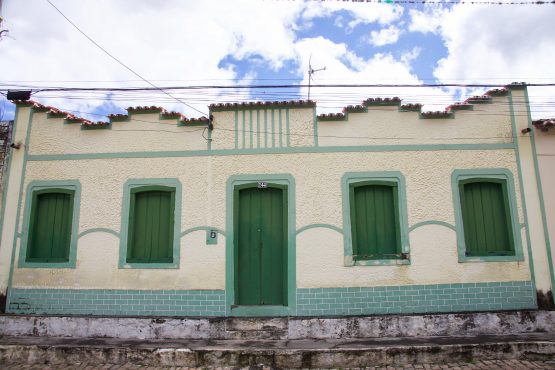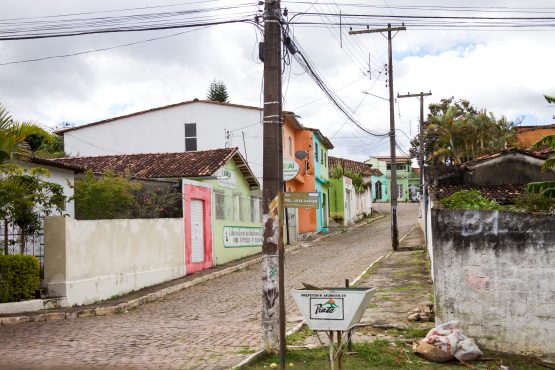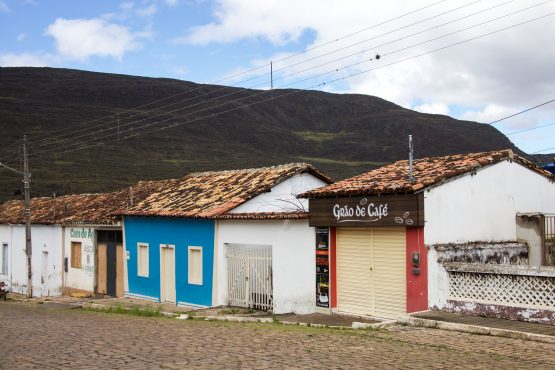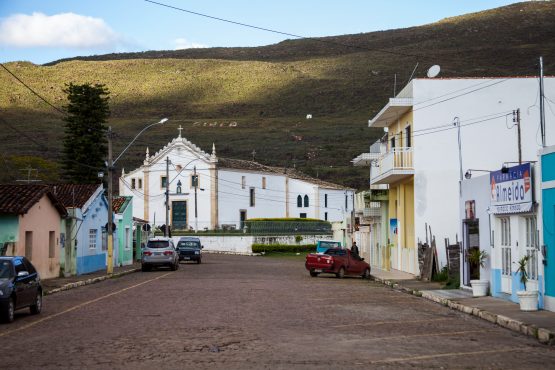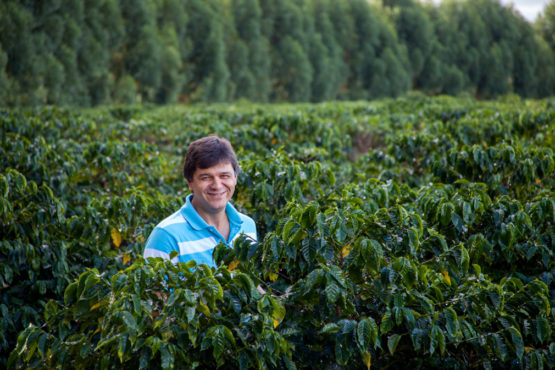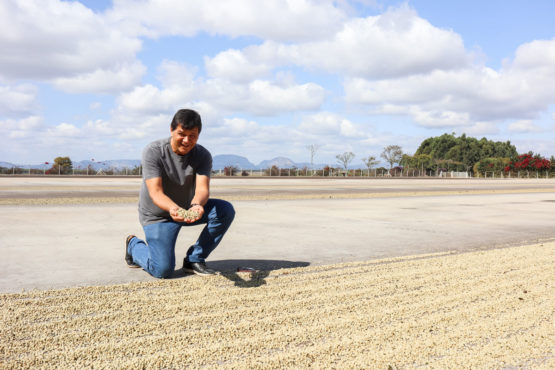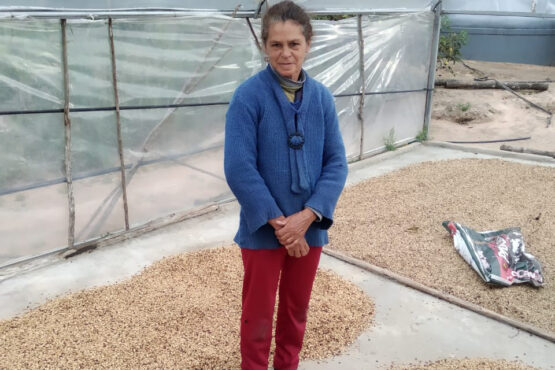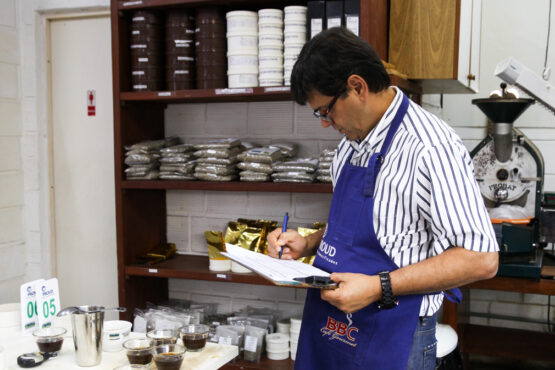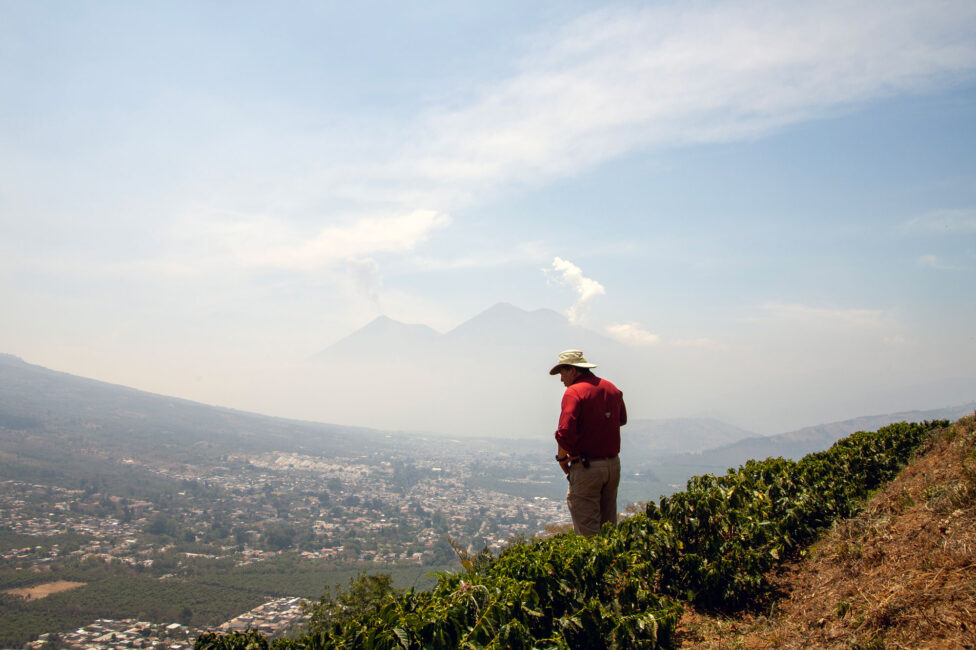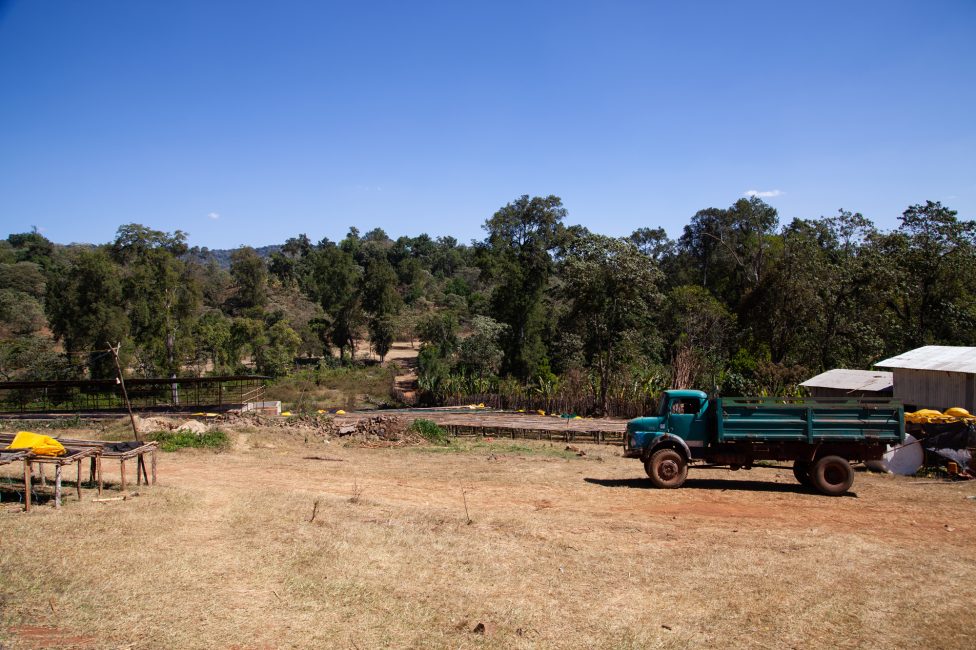Small Producers of Piatã
Great clarity and structure, with vibrant stone fruit acidity and a silky body. Apricot, pear and almond, balanced by molasses sweetness.
This coffee comes from a small group of producers who have farms Piatã, a privileged coffee growing region in Bahia’s Chapada Diamantina region. Chapada Diamantina translates to ”Diamond Plateau” in Portuguese, and for 100 years this area was mined for the gemstones embedded in its cliffs. Today, the region is famous for its specialty coffee.
Piatã is a unique and distinct coffee-growing region. The coffees produced here tend to be very floral, sweet and complex, and quite different from those that we source elsewhere in Brazil. There are two main factors behind this: Coffee grows at elevations of up to 1,400 meters above sea level, which is very high for Brazil. Additionally, temperatures in Piatã range from about 2°C to 18°C in winter, some of the lowest in the country. Combined, the high elevation and cool climate are key in slowing down the maturation of the coffee cherries, leading to an increased concentration of sugars in the bean. The result is a cup profile that is bright, transparent, and distinctive. Piatã’s relative closeness to the Equator line ensures coffee trees can experience such drastic conditions without being affected by frost, unlike traditional coffee-growing regions in the country.
Coffees from Piatã are considered some of the best in Brazil. The town was first internationally recognised for its high quality in 2009, when five of the top 10 spots in Brazil’s Cup of Excellence came from Piatã. The region’s dominance in the competition has continued every year since, particularly in 2016 when an astounding 19 of the 24 winning lots came from Piatã!
These coffees are extremely limited, as production here is relatively low, given the small scale of the farms in this part of Brazil. MCM has been sourcing coffee from this region since 2012 and have built meaningful relationships with key figures among the town’s coffee growers. Many of these connections have been made possible thanks to our dear friend, coffee mentor and sourcing partner in Brazil, Silvio Leite.
Over a 40 year career, Silvio has developed a deep understanding of Brazilian coffee and as one of the founders of the Cup of Excellence (which started in Brazil), has had a hand in shaping it. Head here to learn more about Silvio and the incredible work he’s done in Brazil.
In recent years, Silvio has been working to support lesser-known, new and upcoming small producers in Piatã to improve their quality, and to connect them with speciality coffee buyers, thereby making the most of the region’s rich potential. Out of this, the ‘Small Producers of Piatã’ project has been born, which brings together exceptional coffees from these producers in a regional blend that showcases everything we look for from this region: exceptional sweetness, pretty floral notes, a complex bright acidity, and wonderful clarity in the cup.
Silvio currently works with over 60 small coffee coffee producers in the region, who all own 5-10 hectares of land. This particular lot comes from five small producers: Ronaldo Menezes, Paulo Azevedo, Wilson da Silva, Maria Vicencia, Alaide Araujo and Manoel da Silva.
HOW THIS COFFEE WAS PROCESSED
This coffee was produced using the pulped natural processing method. Coffee was hand pulped on each of the small farms and dried on patios with the mucilage still attached – spread into thin layers and raked several times a day. At this stage, Silvio encourages the producers he works with to dry their coffee as slowly and carefully as possible. Silvio tells us this is key in improving and ‘saving’ the fructose and all positive attributes found in the remaining mucilage, as these contribute to a higher quality in the final cup.
Once coffee was dry and rested, each lot was cupped by Silvio and his team. Their goal was to blend together lots scoring above 86 points that were too small to be exported on their own. The coffee was then milled at Fazenda Progresso, in Mucugê.
This is our second year of buying coffee in this way with Silvio, as we have been very excited about its potential from the first time we cupped it. Our hope is to continue to feature this unique blend in years to come, and in addition, uncover fantastic new small producers in the region and also start to feature their coffees as standalone single producer lots.
When we asked Silvio what his hopes for the future were he explained: “To show the world, through the work of these farmers, the richness of flavours and characteristics that are still relatively unknown in Brazil. And be able to bring international recognition to them, that will improve their quality of life. I hope that in the next couple of years, the new generation will join and bring new energy to this legacy. “
